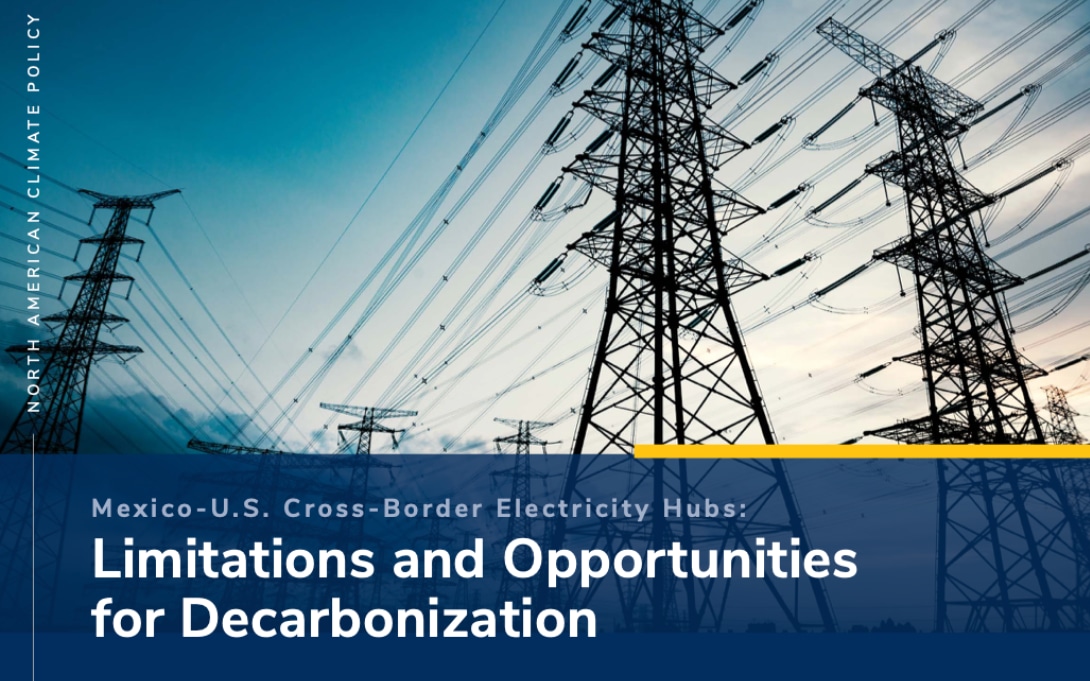This paper is part of the North American Colloquium (NAC), a collaborative venture between the Autonomous National University of Mexico, University of Toronto, and University of Michigan. Established in 2018, the NAC brings together leading academic analysts and practitioners from Mexico, Canada and the United States to address key social and policy issues facing all three countries. Each year, the three partner universities select a theme, and one serves as the host to convene joint activities throughout the year.
Mexico-US cross-border electricity hubs: Limitations and opportunities for decarbonization
The Mexico-U.S. cross-border integration of the oil-and-gas sector is profound, contrasting with electricity trade and renewables. Policies on both sides do not prioritize the decarbonization of the energy trade.

Key findings
- Policies on both sides of the border determine how markets and infrastructure work under three cross-border electricity hubs.
- Three policy factors apply to the three cases:
- Policy differences regarding centralization and decentralization of energy.
- The lock-in of cross-border trade into fossil fuels due to Mexico’s dependency on U.S. oil and gas and Texas historical fuels production
- The small size of the cross-border electricity market.
- Due to national and state policies, all three hubs run in different directions regarding renewables.
- Even with renewable deployment on both sides of the border and the political will to integrate them into cross-border trade, the limited and ill-maintained infrastructure is an obstacle to overcome in the three hubs.